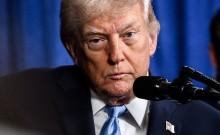Iran has reached a historic agreement with major world powers over its nuclear programme, at the end of marathon talks in Vienna.
The deal that will see the P5+1 group of nations - the United States, Britain, France, China, Russia and Germany - relieving sanctions against Tehran in exchange for the theocratic regime slashing its ability to produce nuclear weapons, was announced at a press conference attended by foreign ministers of the above mentioned countries in the Austrian capital
The decision that we are going to take today not only on Irans nuclear program but is much more than this, it is a decision that can open the way to a new chapter in international relations, said the EU High Representative for Foreign Affairs Federica Mogherini.
Its a sign of hope for the entire world, she added.
The breakthrough came at the end of a long night of negotiations in the Austrian capital, where representatives gathered in June to find a permanent accord after a framework agreement was struck in April.
It brings to a successful end a decade-long diplomatic effort that seemed to have suffered an eleventh-hour setback yesterday as last-minute disagreements are said to have revolved around the lifting of a UN arms embargo and terminology used to described Irans nuclear activities.
Iranian Foreign Minister Mohammad Javad Zarif descrbed the deal as the opening of a new chapter of hope suggesting that it will form the cornerstone for further cooperation between Iran and its negotiation partners on other issues affecting the international community.
I believe this is an historic moment, he said. We are reaching an agreement that is not perfect for anybody but it is what we could accomplish and it is an important achievement for all of us.
The contents of the deal were not immediately known. A long-standing thorny issue has been the extent of access that Tehran is to grant to inspectors monitoring its nuclear sites.
A Western diplomat told AP a compromise has been reached to allow UN examiners to press for visits to military sites, leaving however Tehran with a possibility to challenge a request in that sense.
A clause to put sanctions back in place in 65 days if conditions of the agreement are breached was also included, Reuters reported, adding that the UN arms embargo is to remain in place for another five years and so will missile sanctions.
Iranian president Hassan Rouhani took to Twitter to express its satisfaction, minutes after his deputy signed a roadmap with the International Atomic Energy Agency (IAEA) on future inspections to the middle eastern countrys atomic sites.
IAEA chief Yukiya Amano said the roadmap was a significant step to clarify outstanding issue regarding Irans nuclear programme, in particular concerning its so-called possible military dimensions (PMD).
Israel reacted angrily at the news, with Prime Minister Benjamin Netanyahu describing it as a bad mistake of historic proportions.
Iran will get a jackpot, a cash bonanza of hundreds of billions of dollars, which will enable it to continue to pursue its aggression and terror in the region and in the world, he said.















